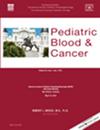National Trends in Management of the Nodal Basin for Pediatric Patients With Occult Stage III Melanoma in the United States
Abstract
Background
Following the publication of recent trials (MSLT-I, MSLT-II, DeCOG), routine completion lymph node dissection (CLND) after positive sentinel lymph node biopsy (SLNB) is no longer recommended for adults with melanoma, while adjuvant immunotherapy (IO) was approved for selected patients with positive SLNB. Given the exclusion of pediatric patients from these studies, we aimed to characterize trends in nodal management for pediatric patients with Stage III melanoma.
Procedure
The National Cancer Database (NCDB) was queried for pediatric patients (age ≤20 years) with melanoma (clinical Stage I/II; pathologic Stage III) who underwent resection from 2012 to 2019. The primary objective was to examine trends in the extent of nodal surgery, the number of lymph nodes examined, and adjuvant IO utilization. Secondary objectives included comparing overall survival (OS) by nodal management and receipt of adjuvant IO using Kaplan–Meier methods.
Results
Overall, 98 patients met inclusion criteria. From 2012 to 2019, the percentage of patients receiving SLNB alone increased (from 13% to 89%); conversely, therapeutic lymph node dissection (TLND) decreased (from 60% to 0%), as did CLND (from 27% to 11%). Median lymph nodes examined decreased from 2012 to 2019 (from 22 to 2), while receipt of adjuvant IO increased (from 33% to 44%). OS did not differ by nodal management nor receipt of adjuvant IO.
Conclusions
The findings of this study support clinical observation after SLNB in pediatric patients with melanoma, as we noted de-escalation in the extent of nodal surgery without compromising OS. We also noted increasing utilization of adjuvant IO among patients with positive SLNB. Multidisciplinary discussion remains vital for managing melanoma in pediatric patients.

 求助内容:
求助内容: 应助结果提醒方式:
应助结果提醒方式:


